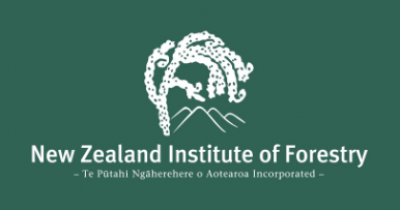29th Nov 2021 Newsletter
PRESIDENTS COLUMN

As the year draws to a close (this being our second to last newsletter) it is appropriate to reflect on the past year. It would be fair to say it has not been the easiest year with lockdowns, falling log prices and increasing carbon prices affecting us all. I am well aware many members have struggled with their mental health over the year and I encourage all members to check in on each other occasionally. I find verbalising and discussing what is bothering me helps me place it in context and sometimes helps with a solution. Looking after our own mental health is precious. While falling returns at work may cause us to work harder, this in fact often builds the stress more. Your health and family are most important at this time and I encourage you to recognise this and find time over the next two months to remove yourself entirely from work, relax and remind yourself we live in a beautiful country with fantastic generous people and we are all extremely lucky.
We will be advertising soon for a position to help us work with MPI on the formation of the Forest Advisors registration scheme. This will be a busy short term contract (up to August 2022) which could well extend after this date. It will be an exciting role and will be at the forefront of designing the future for all professional foresters. If this is something you are interested in keep an eye out for the advert or contact me.
In January we will be advertising for nominations for the next council. If you have ever thought about standing for council please consider putting your name forward. If you would like to understand more about what the role entails please don’t hesitate to call me or another councillor to discuss. It would be good to have elections for all positions including Council, President, Vice President, Treasurer and Secretary.
Finally as we roll into summer please keep an eye on the fire danger. Here in Hawkes Bay we have had an amazing spring growth; as the grass starts curing we now have an incredibly fuel load. I know from my travels this is the same throughout the country. Take care during your travels and educate as many people as you can about fire danger. Our forests (native and plantation) are too precious to be lost to fire.
As always I love hearing from you either via members voice or directly.
Thanks
James
MEMBERS VOICE
I offer some thoughts in response to Andrew McEwen’s post of 1 November.
For establishing native forest, up-front costs can even be zero, given how native species can take over exotic vegetation, forest or pasture. But that often gives native vegetation of modest early carbon sequestration, and of no commercial value within reasonable time. Savings at establishment can thus inflate the opportunity costs.
Much native vegetation can largely look after itself, often with the help of wind pollination and bird dispersal of seed. Without fire, a very high proportion of previously forested areas would eventually revert to native vegetation. However, with grassland - much of it created soon after first human settlement of Aotearoa – fire can aprotect native vegetation by killing wilding conifers, as the recent Lake Ohau fire showed us. But fire is a tricky management tool.
No one can deny native trees the right to be present – indeed, it can hard to eliminate some of them. We have three interrelated questions to address
- How much of our land area should be in native forest?
- On what land should native forest be preserved, restored of re-established?
- What species? In places we get more than enough of some native species without even trying. At the other extreme, some iconic species may need expensive planting and follow-up tending and protection.
All these questions are in part already answered by the very large areas of native forest on steep country. These must remain as protection forest, with location and to a lesser extent species composition already determined – although pest control poses technical and fiscal challenges. Elsewhere, it is more complicated. Some types of lowland forest are almost all gone, posing the challenge of finding land for ecological restoration plus the resources for doing it. For that, we must look to the good offices of Tane’s Tree Trust. In between, are very large areas of hill country where land-use options exist. The raft of land-use issues there will likely play out messily among the positions and interests of the many stakeholders. But good information can only help to improve the decision-making.
The increasing urgency of mitigating climatic change calls for prompt carbon sequestration, which points towards radiata pine. And harvesting a stand needs not fully reverse the sequestration. Wood in service as a building material continues sequestration, and can substitute for emission-intensive materials. While not yet properly rewarded through either carbon credits or carbon taxation, such sequestration is for real. Extending wood for construction into increasingly taller buildings can surely help.
Regarding manuka, and its honey production, there are concerns. It may face external competition. Of the genus Leptospermum, we have arguably just one species, arguably shared with Australia which has officially 81 others. Of those others, some would likely produce comparable honey and be manageable. Also, manuka can grow in some other countries, and without its natural pests. Besides, management of manuka for continued honey production can still be constrained by terrain.
Public opinion is unfortunately double-edged. It has in the past been a crucial antidote to employment politics. But it is so vulnerable to the megaphone of misinformation in social media. That makes all the more important informed debate embracing the nuances that are so easily ignored.
Rowland Burdon
Emeritus Scientist, Forest Genetics & Biotechnology
Scion (New Zealand Forest Research Institute Ltd)
____________________________________________________________________________________________
Have you say!
Ideas, thoughts or advice?? Send it through to admin@nzif.org.nz

INSTITUTE NEWS
An on-line CPD seminar on the revised Code of Ethics
At the 2020 NZIF Annual General Meeting held in Wellington on 26th September 2020, Members approved the adoption of a revised Code of Ethics. A fit for purpose Code of Ethics is an important requirement for any Professional Body. It is a clear statement of the commitment to pursue the highest professional standards that we as individual members and as a collective group, make to the wider community. Every NZIF member is required to adhere to the NZIF Code of Ethics.
As required under the Real Estate Agents exemption, granted to NZIF Registered Members under the Real Estate Agents (Exemptions) Regulations 2017 the revised Code has now also been approved by the Ministry of Justice.
The Council at its meeting on 10th November 2021, resolved that the revised Code of Ethics would come into force and be binding on all members from 1 January 2022.
The new Code of Ethics is on the webpage Read here
A guidance note providing helpful back ground on the revised Code of Ethics is also located on the Webpage Read here
To assist members, an on-line CPD seminar on the revised Code has been scheduled for 3rd December at 1.00pm. A limit of 50 attendees has been set on a first in, first served basis. If there is sufficient demand a 2nd seminar will be held on the 9th December at 3.00pm. The seminar is expected to run for about 1.5 hours, depending on the number of questions.
To register, email Raewyn at admin@nzif.org.nz. A zoom link will be sent to you. If you can’t attend the first one, or if you miss out on the limit for it, please indicate if you would like to attend the back-up one, should it be held.
James Treadwell
NZIF President
____________________________________________________________________________________________
From the Registrar
Any member of the NZIF has the right to object to an application. Any objection should be lodged with the Registrar registrar@nzif.org.nz within 20 working days of the first appearance (29 November 2021) of the notice in this newsletter, specifying the grounds for the objection.
SUCCESSFUL 5 YEAR REGISTRATION REVIEW
Continuing Registration:
- David Crawley of Rotorua
SUCCESSFUL APPLICATION FOR REGISTERED MEMBER
The following Members are now Registered Members:
- Nigel Chandler of Auckland
- Cam Branch of Taupo
- Daniel Robertson of Waikouaiti
Alan Bell, Registrar
NZIF Registration Board
registrar@nzif.org.nz
+64 27 444 7779
INSTITUTE EVENTS
Hawkes Bay local section invites you to;
A talk by James Treadwell.
Our President will be providing a presentation on the status of NZIF, issues and our place in the forest industry.
Date and time: 16th December @ 4pm to 6pm (approx.).
Venue: Brave Brewery, address: 205 Queen St East, Hastings; the venue has outdoor seating and a beer and light food is available.
This meeting is being part financially supported by NZIF, and is therefore available to NZIF members ONLY. All participants need to register with admin@nzif.org.nz, no walk-in attendees accepted.
RSVP Raewyn at admin@nzif.org.nz by 14th Dec 2021
NZIF Administrator
Email: NZIF Office
Mobile: +64 22 653 3750
NZIF Registration Board
Email: Registrations
Mobile: +64 27 463 1118
Complaints
Email: Complaints
Appeals
Email: Appeals
© All rights reserved. No part of this site may be reproduced, adapted, or distributed without prior written permission
We are a forum to exchange ideas, opinions and information about forestry.
We encourage and help our members attain and maintain the highest standards of their profession.




